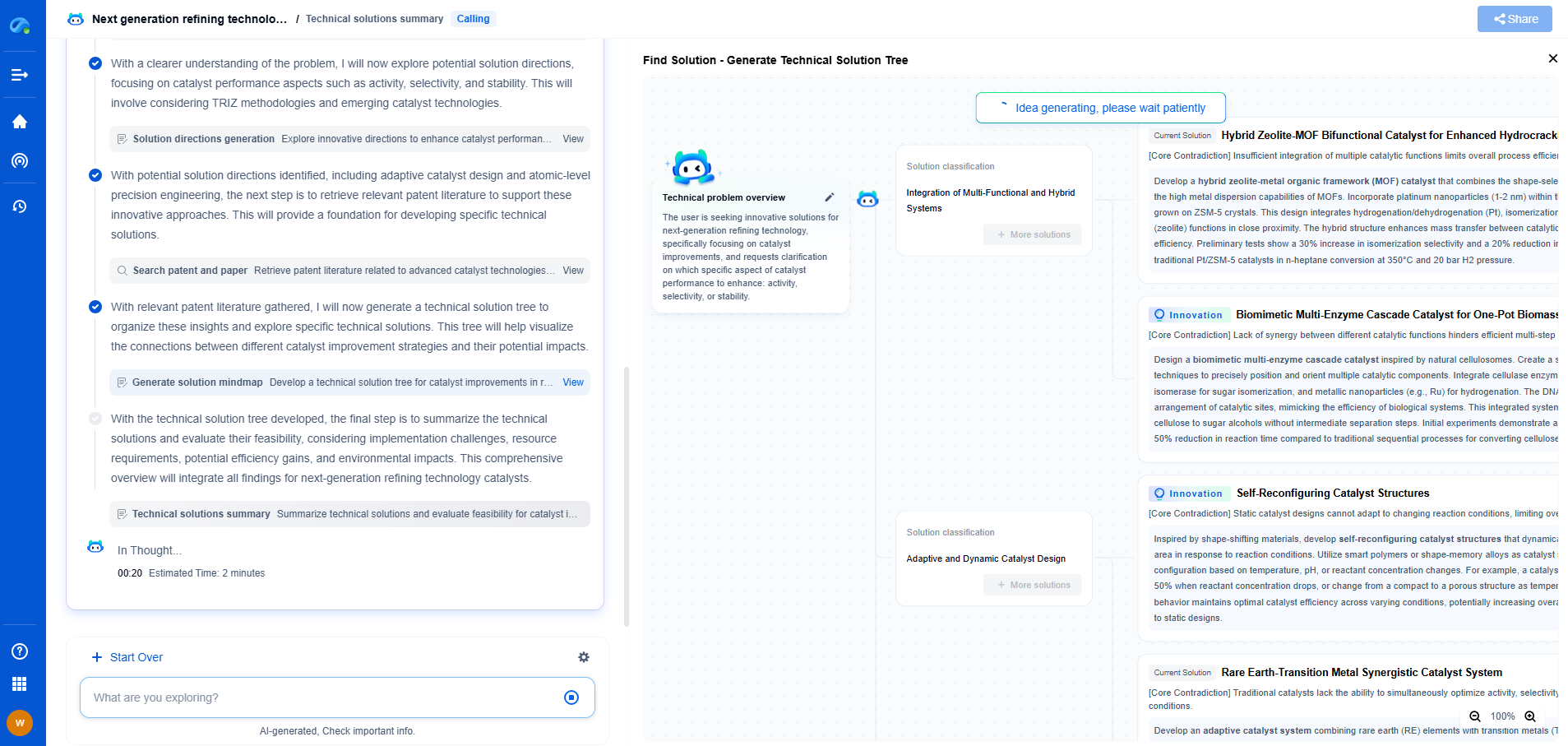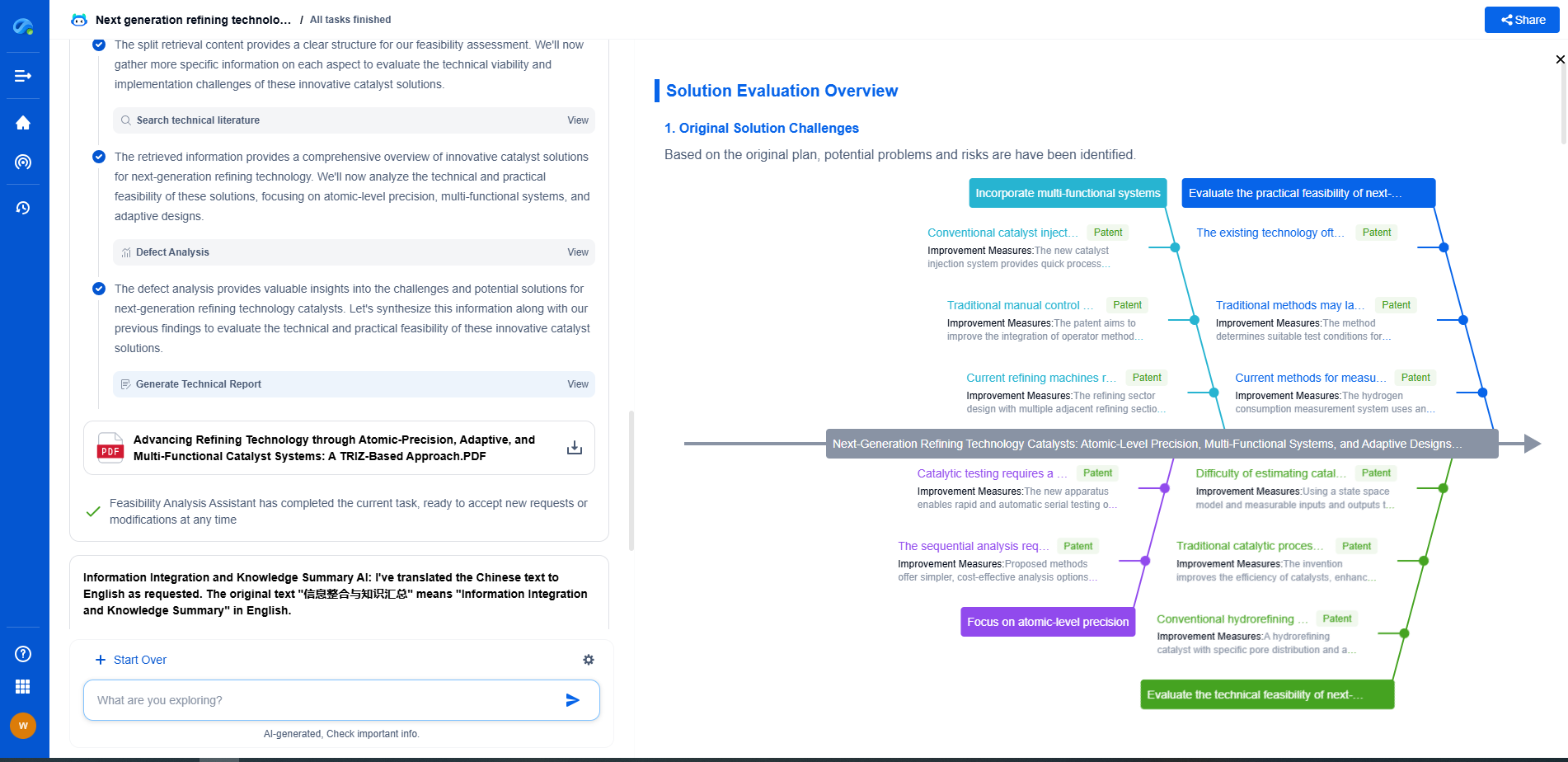What is Model Predictive Control (MPC)? The Future of Process Optimization
JUL 2, 2025 |
Model Predictive Control (MPC) is an advanced method of process control that has gained prominence in industrial applications due to its ability to handle multivariable control problems and manage constraints on inputs, outputs, and states. At its core, MPC is a type of control strategy that predicts the future behavior of a system using a dynamic model. By optimizing a performance criterion over a future time horizon, MPC can determine the best control actions to achieve desired results.
The Essence of MPC
The fundamental principle of MPC revolves around the concept of prediction. Unlike traditional control methods that react to changes, MPC uses a model to predict future outcomes of a process. This foresight allows for the optimization of control moves by solving a finite-horizon open-loop optimal control problem at each time step. The solution provides an optimal control sequence, with only the first control input applied to the system. This process is repeated at every time step, allowing for new measurements and predictions.
Advantages of MPC
One of the most significant advantages of MPC is its ability to handle multiple input and output variables simultaneously, making it ideal for complex industrial processes. Additionally, MPC can address constraints explicitly, ensuring that the control actions remain within feasible limits. This capability is crucial in industries where process variables must adhere to strict regulatory guidelines or safety limits.
Moreover, MPC's predictive nature allows it to anticipate future events and take proactive measures, reducing the likelihood of oscillations and improving stability. This predictive control also enhances the system's efficiency and performance, leading to energy savings, reduced operational costs, and improved product quality.
Applications of MPC
MPC is widely used in various industries, including chemical processing, oil refining, automotive, aerospace, and energy management. In the chemical industry, MPC optimizes reactions and distillation processes, ensuring consistent product quality and efficient resource use. In the automotive sector, MPC plays a critical role in engine control, improving fuel efficiency and reducing emissions.
The aerospace industry benefits from MPC in flight control systems, where it enhances aircraft stability and maneuverability. In energy management, MPC is employed in managing the operation of power grids, optimizing the integration of renewable energy sources, and improving grid reliability.
The Future of Process Optimization with MPC
As industries strive for higher efficiency and sustainability, the demand for advanced control strategies like MPC is set to grow. Continuous advancements in computational power and algorithms are making MPC more accessible and applicable to a broader range of processes.
Furthermore, the integration of MPC with machine learning and artificial intelligence is opening new frontiers in process optimization. These technologies can enhance the model accuracy and adaptiveness of MPC, leading to even more precise control actions and better handling of uncertainties.
Challenges and Considerations
Despite its advantages, implementing MPC is not without challenges. Developing accurate models can be time-consuming and complex, especially for highly nonlinear systems. Additionally, the real-time computational requirements for solving optimization problems can be demanding. However, ongoing research and technological progress are addressing these issues, making MPC more robust and easier to implement.
Conclusion
Model Predictive Control represents a significant leap forward in process optimization, providing industries with a powerful tool to enhance efficiency, stability, and performance. As technology continues to evolve, MPC is poised to play an even more critical role in the future of industrial automation and control, paving the way for smarter, more sustainable operations.
Ready to Reinvent How You Work on Control Systems?
Designing, analyzing, and optimizing control systems involves complex decision-making, from selecting the right sensor configurations to ensuring robust fault tolerance and interoperability. If you’re spending countless hours digging through documentation, standards, patents, or simulation results — it's time for a smarter way to work.
Patsnap Eureka is your intelligent AI Agent, purpose-built for R&D and IP professionals in high-tech industries. Whether you're developing next-gen motion controllers, debugging signal integrity issues, or navigating complex regulatory and patent landscapes in industrial automation, Eureka helps you cut through technical noise and surface the insights that matter—faster.
👉 Experience Patsnap Eureka today — Power up your Control Systems innovation with AI intelligence built for engineers and IP minds.
- R&D
- Intellectual Property
- Life Sciences
- Materials
- Tech Scout
- Unparalleled Data Quality
- Higher Quality Content
- 60% Fewer Hallucinations
Browse by: Latest US Patents, China's latest patents, Technical Efficacy Thesaurus, Application Domain, Technology Topic, Popular Technical Reports.
© 2025 PatSnap. All rights reserved.Legal|Privacy policy|Modern Slavery Act Transparency Statement|Sitemap|About US| Contact US: help@patsnap.com

